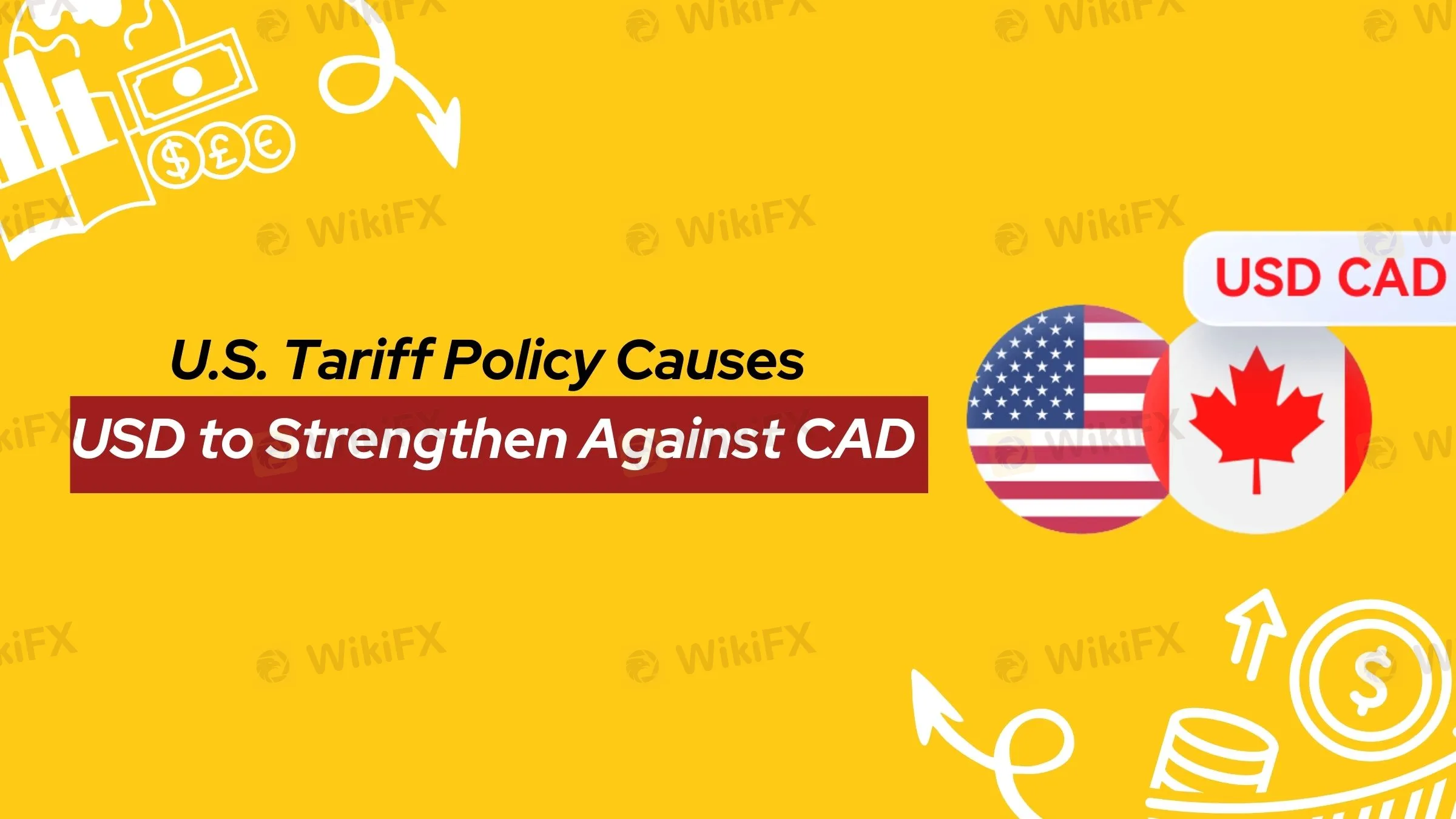简体中文
繁體中文
English
Pусский
日本語
ภาษาไทย
Tiếng Việt
Bahasa Indonesia
Español
हिन्दी
Filippiiniläinen
Français
Deutsch
Português
Türkçe
한국어
العربية
U.S. Tariff Policy Causes USD to Strengthen Against CAD
Abstract:Trump’s tariff remarks caused USD/CAD volatility, sparking concerns over Canada’s economy. Markets monitor developments and potential trade impacts.

On January 20, 2025, Donald Trump was inaugurated as the President of the United States. During the ceremony, he signed multiple executive orders addressing various domestic and international issues. However, none of these orders included provisions on tariffs. Nevertheless, in his inaugural speech, Trump mentioned the possibility of imposing a 25% tariff on imports from Mexico and Canada, citing concerns about border security and fentanyl smuggling. Although no formal policies have been implemented yet, these remarks have already impacted financial markets, particularly the USD/CAD exchange rate.
Market Reactions: USD/CAD Surge and Volatility
Trump‘s remarks caused immediate volatility in the USD/CAD exchange rate. Following his speech, the pair surged to 1.4518 before retracing slightly to 1.4445 during Asian trading hours. The market reaction underscores the sensitivity of the Canadian dollar (CAD) to U.S. trade policy uncertainties. Investors viewed the proposed tariffs as a potential threat to Canada’s export-driven economy, leading to a weakening of the CAD. Traders also began pricing in additional risks, anticipating further economic disruption if tariffs were to be enacted.

Canadas Response
If Trump‘s tariff proposal materializes, it could have far-reaching consequences for key Canadian industries such as energy, automotive, and agriculture, which heavily depend on U.S. markets. Increased export costs would reduce the competitiveness of Canadian goods, potentially leading to lower demand and slower economic growth. Additionally, the Bank of Canada’s (BoC) recent business outlook survey indicates subdued economic sentiment, reflecting concerns over the potential ripple effects of U.S. trade policies on Canadian businesses.
Canadian Prime Minister Justin Trudeau has strongly criticized Trumps tariff proposal, calling it a threat to the integrated North American market. He emphasized that such measures would not only harm Canadian industries but also increase costs for American consumers and businesses. Trudeau warned that Canada would respond decisively, including implementing retaliatory tariffs if necessary. Canadian officials have also reiterated their commitment to maintaining stable trade relations while defending the interests of Canadian exporters.
Monitoring Key Developments
The future of the USD/CAD exchange rate will hinge on the implementation of Trump‘s tariff proposal and the outcome of trade negotiations. If tariffs are imposed, the CAD could face sustained downward pressure due to its reliance on U.S. markets. However, diplomatic resolutions or stronger-than-expected Canadian economic data, such as the December CPI set to release soon, could provide some support for the CAD. Investors are likely to monitor these factors closely, as any developments could significantly influence the currency pair’s trajectory.
Disclaimer:
The views in this article only represent the author's personal views, and do not constitute investment advice on this platform. This platform does not guarantee the accuracy, completeness and timeliness of the information in the article, and will not be liable for any loss caused by the use of or reliance on the information in the article.
Read more

"Rate & Reward: Broker Review Contest"
Share Your Real Experience, Rate Your Broker Duration: April 21, 2025 – May 23, 2025 Eligibility: Must be a verified account holder of the reviewed broker.

Why Are More Regulated Brokers Providing Free VPS Services?
Discover why more regulated brokers are offering free VPS services, enhancing trading efficiency, reducing costs, and improving client retention in the competitive trading market.

Southeast Asia’s Booming Investment Scams | How Smart Traders Stay Safe
The stories are all too familiar: “A slick website, aggressive marketing on social media, promises of guaranteed returns, and then radio silence when it’s time to withdraw.”

What Every Trader Must Know About Online Brokers
In the world of online trading, where fortunes can be made or lost in the blink of an eye, success often depends on more than market knowledge or strategy. It hinges, sometimes invisibly, on one crucial factor: your online trading broker. But what exactly is an online trading broker, and why is their role so pivotal to your financial journey?
WikiFX Broker
Latest News
Five UK Financial Firms Collapse, FSCS Offers Support for Affected Clients
Why Trade Agreements Matter to Nations
Non-Existent Online Scheme Took Away RM580,000
RM15 Million Gone in Fake Investment Scam
Think Scams Won’t Happen to You? That’s Exactly What Scammers Count On
Crypto Traders Hit by Scam Using Fake Regulatory Documents, MFSA Cautions
Trade Fights Are Heating Up—What Happens Next?
Juno Markets Upgrades to FYNXT PAMM
Beware of New Scam Tactics Lurking on WhatsApp!!
Italy’s CONSOB Blocks Sites of ITradingFX and NEX TRADE in Latest Crackdown
Currency Calculator


